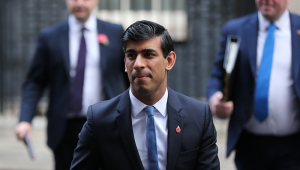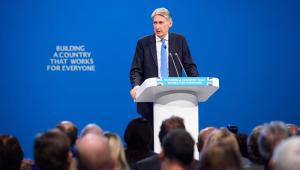Introducing the think-tank’s analysis of Wednesday’s Autumn Statement yesterday, Paul Johnson noted that the chancellor had loosened fiscal policy by an annual £10bn. However, this extra spending would be largely targeted at capital projects rather than at services or benefits.
“Give the choice between jam today in the form of more money in people’s pockets and jam tomorrow in the form of potential economic returns from greater investment, he went for jam tomorrow,” Johnson said.
“Strikingly he responded not at all to calls for more money for either the NHS or social care. I’m going to stick my neck out and suggest he won’t be able to do that for much longer.”
The extra funding for capital projects was “significant”, Johnson observed, taking public sector net investment to around 2.3% of GDP. This is “pretty much exactly Labour’s pre-crisis planned investment, and well above the average over the last 30 years”.
There were some familiar IFS reprimands for the government’s approach to tax policy.
Highlighting the chancellor’s decision to cancel the scheduled fuel duty rise for the seventh successive year, Johnson said: “If the policy is never to increase fuel duty again, as seems to be the case, we should just be told rather than being told always that it will rise with inflation next year and then that never happening.
“This is turning into a really big problem for the Treasury and for our approach to the taxation of motoring.”
The IFS also flagged up a big squeeze on living standards, with real incomes forecast to rise by less than 5% between now and 2021. Half of the wage growth that was projected to happen back in March, will now not take place.
“On these projections real wages will, remarkably, still be below their 2008 levels in 2021,” said Johnson.
“One cannot stress enough how dreadful that is – more than a decade without real earnings growth. We have certainly not seen a period remotely like it in the last 70 years.”
CIPFA also released a post-Autumn Statement briefing yesterday, highlighting the impact on different parts of the public sector as well as the voluntary sector.
“Despite borrowing to fund investment, sticking to the current spending plans means there will be no easing of austerity for public services,” the institute noted.
“This also means the government will keep to the same broad priorities for the remainder of this Parliament in line with its previous spending decisions, including ring fencing, on NHS, defence, overseas aid, and the triple-lock on pensions.”




















